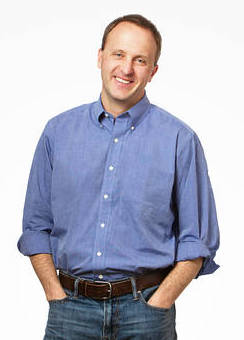 Bryan Roberts
Bryan Roberts
Bryan Roberts, one of Venrock's healthcare-focused investment partners, has some rules of thumb for investing in digital health -- and for what to pass up. Roberts' portfolio included six successful exits last year, the Wall Street Journal reports, and this year he has invested in Stride Health, Lyra Health, Intarcia Therapeutics, and Grand Rounds.
In a recent interview with the Wall Street Journal, Roberts said digital health is moving into a period of "constructive tension" which will be marked by big successes, but even bigger failures. Therefore it's important to look for companies that already have a plan for their next scale up.
"In digital health, people have business plans that show how to go from zero to $10 million or $20 million in revenue," he said. "But what comes after that? Where is the plan to get to $250 million?"
For example, he said, Grand Rounds, which Venrock recently re-upped its investment in, will get to $20 million with their second opinion service, Roberts believes, and the data they're collecting on doctor performance will take them to the $250 million level. Another thing he looks for is solutions that have a "tangible means to engage the users".
Focusing on the longterm means taking a pass on areas that look like big successes. Roberts told WSJ that wearables are an area he avoids "because we have not seen the persistence of usage". He also avoids areas that are being tackled similarly by many different companies.
"In digital health and biotech both, there’s a lot of duplication," he told WSJ. "There are these digital therapy, weight-loss products. In biotech, there are a lot of oncology molecular diagnostics, people doing DNA sequencing of tumors. These are areas where you might see some consolidations, some winners stepping away from the losers."
Finally, Roberts avoids -- for now -- companies whose primary customer is pharma. "Their data needs ... are too fragmented," he said.
Forbes recently interviewed another Venrock health investor, Dr. Bob Kocher, and while Kocher didn't talk investment strategy, he did share what led him to get out of medicine and into investing.
"I want to help patients be better and I’d really like to treat cancer patients, but I began thinking that maybe I could help them more if I made the hospital work better for them," he told Forbes. "I was worried that if I was just a kind of a traditional academic doctor, that the system I’m working in wasn’t going to be good enough to help the patients do as well as they could and that we would spend all of our time trying to optimize one part of it and then we’d let like the 80 percent which is the execution mess it up."















